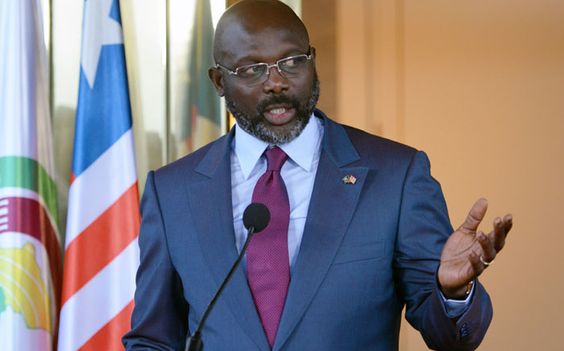Africa
President Weah wins the first round of voting in Liberia

After a lacklustre first term, the 57-year-old has come under fire for making unfulfilled promises.
The National Electoral Commission announced final results on Tuesday, saying that Liberian President George Weah will face a run-off election on November 14 after defeating his major opponent by less than 0.5 percent in the first round.
According to Davidetta Browne-Lansanah, chairwoman of the election commission, former international football player Weah received 43.83 percent of the ballots cast on October 10 while Joseph Boakai received 43.44 percent.
The “run-off vote is hereby declared to be held on Tuesday, November 14, 2023,” she said, because no candidate received enough votes to win with an absolute majority.
That creates a scenario similar to the 2017 election run-off in which Weah, who was well-liked by many young people, was elected president.
After a lacklustre first term, the 57-year-old has come under fire for making unfulfilled promises.
Many of the nation’s poorest people’s living conditions have not improved, and corruption has increased.
READ ALSO: Liberians go to the polls as President Weah seeks reelection
Over the past three years, the United States has penalised five senior Liberian officials for corruption.
Boakai, 78, has played a significant role in national politics for almost four decades and served as vice president from 2006 to 2018.
He has pledged to rebuild the nation’s reputation, build infrastructure, and enhance the lives of those who are least fortunate.
Boakai’s spokesperson Mohammed Ali told AFP that the challenger was prepared for the run-off campaign despite voting irregularities in the first round, such as the counting of invalid votes and issues identifying some voters, before the final results were made public.
In the country of West Africa on October 10, none of the other 18 presidential candidates earned more than three percent of the vote.
The first round of voting saw a “historic” and “record” turnout of 78.86%, according to the electoral commission.
The electoral commission has received praise from international observers for the efficient handling of the first round. None of the main incidents occurred.
Fears of post-election violence were sparked by conflicts that broke out during the campaign between supporters of the ruling party and the opposition, resulting in numerous fatalities.
The vote was the first to be conducted following the conclusion of the UN’s peacekeeping operation in Liberia in 2018.
After two civil wars between 1989 and 2003 claimed more than 250,000 lives, the mission was established.
AFP
